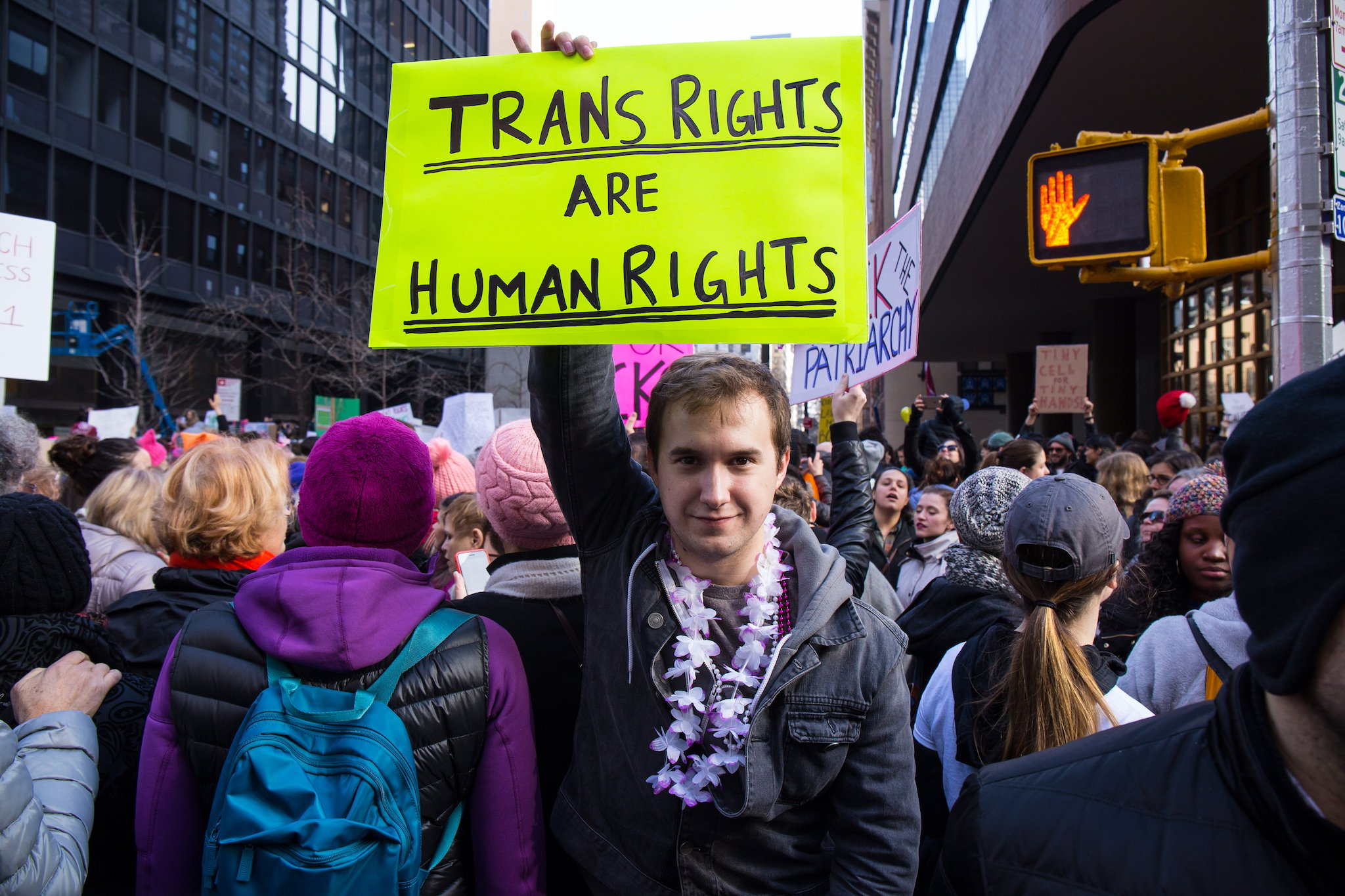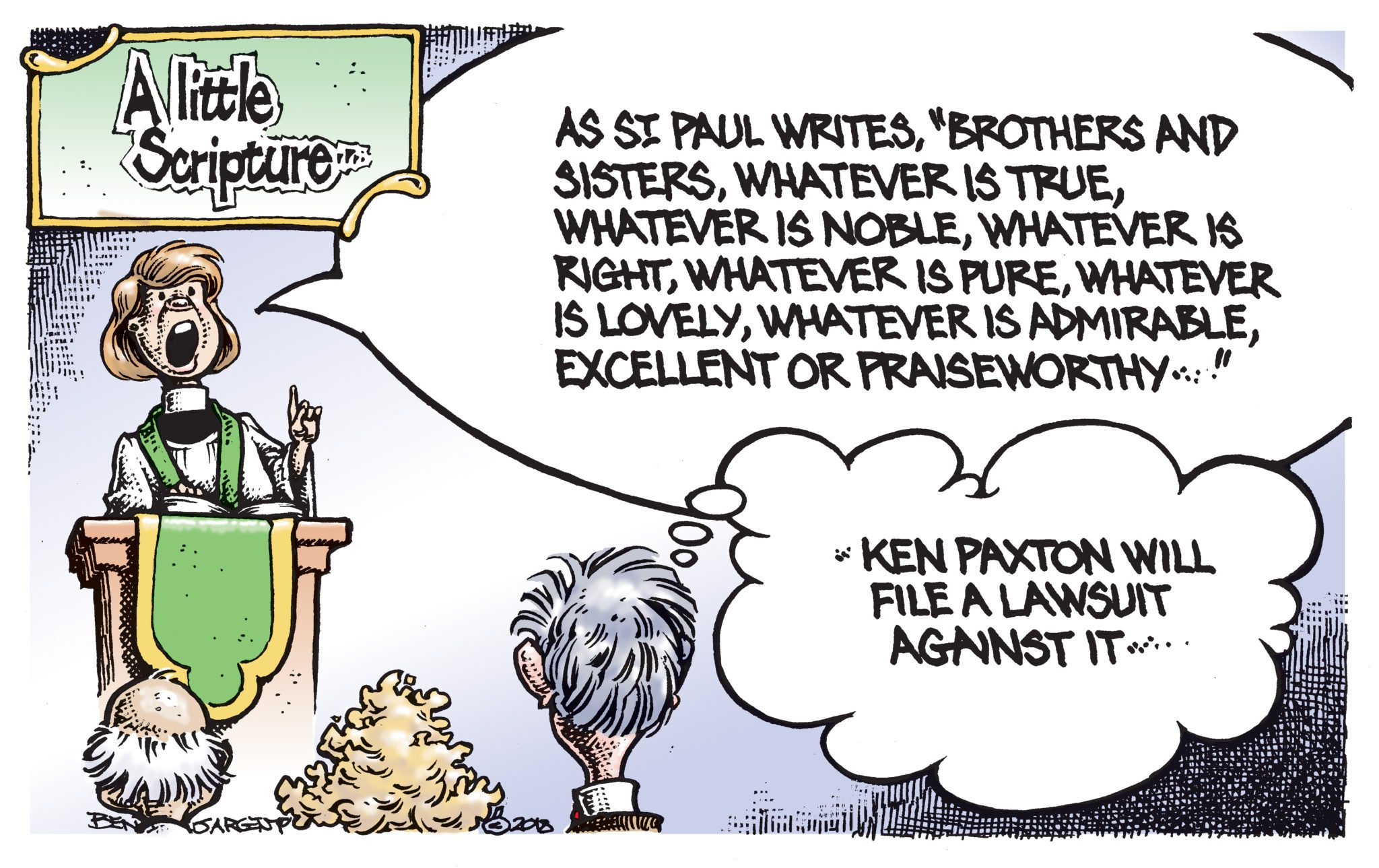
God and Guns: Courting the Christian Fringe in the Texas GOP Primaries
As Texans become less conservative and more religiously diverse, chasing far-right Christian voters may become a liability for Republicans.

White conservative Christians have long been key to Republican dominance in Texas politics. They’re especially critical in GOP primaries, where low turnout means races can be decided by a statistical handful of hardcore voters. To get out the religious right, many conservative candidates not only trumpet their own religiosity, but espouse some fairly extreme beliefs.
It’s a predictable game plan, but it may no longer be the wisest one. The Lone Star State is changing, becoming less conservative and more religiously diverse. Chasing after the most conservative Christian voters means running away from more and more Texans. Still, the ideological shift hasn’t stopped GOP candidates from pandering to the far right this cycle.
Listening to the rhetoric coming out of the Texas primaries, you might conclude that Christianity is an angry, persecuted minority faith that loves guns and would force women to carry a pregnancy to term even in cases of rape, incest or severe fetal abnormality. That’s not the faith many Christians profess. Some do — though they’re generally in decline and growing older — and they’re the ones many candidates are busily courting.
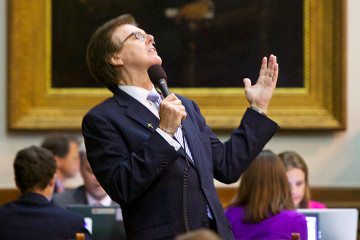
Republicans continue to play up fears, stoked by Fox News and right-wing radio, of a seemingly never-ending “war on Christianity.” The very notion is irrational. Developments like same-sex marriage — often cited as evidence of the “war,” yet supported by many Christians, including some prominent evangelicals — represent not an orchestrated attack on Christianity but deeper social and demographic shifts. Christianity still dominates the religious landscape in Texas and nationally, and the religious right controls every statewide office in Texas as well as the state Senate, not to mention the White House.
Call it “the self-marginalization of the Texas GOP.” For as the party takes a hard right, Texas itself seems to be moving in a different direction.
Yet many GOP politicians talk as if Christianity were teetering on the brink of extinction. “Our churches are under assault,” claims Jason Huddleston, who’s challenging state Representative Ken King, R-Canadian. Congressional candidate Jerry Hall declares, “As a Christian I will not stand by another day while our Christian values are being trampled.”
Trey Blocker, who’s running against Agriculture Commissioner Sid Miller, promises on his campaign site to “use the power of the pulpit to defend Christianity and return our nation to the its [sic] religious roots.”
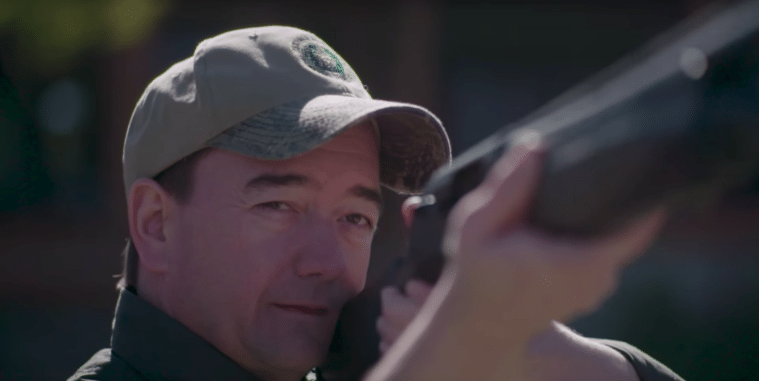
Another example comes from Matt McCall, one of 18 Republicans running to replace retiring Congressman Lamar Smith, R-San Antonio. “In a time of vicious hatred of God and of those who hold to Judeo-Christian beliefs, protecting and expanding gun rights is paramount,” McCall says on his campaign site. McCall, who opposes gun free-zones because he believes they invite attacks, explained in an email to the Observer that he’s referring to the use of firearms to defend against incidents like the 2017 massacre at a Sutherland Springs church.
Other Republicans have also adopted a God-and-guns approach to courting Christian conservatives ahead of the March 6 election, even in the face of surging national support for gun control in the wake of the Florida school shooting.
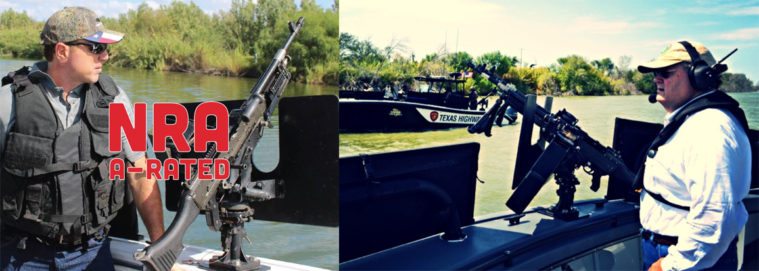
Take for instance state Representative Pat Fallon, a Frisco Republican who’s challenging incumbent state Senator Craig Estes, of Wichita Falls. Fallon’s Facebook feed combines Christian memes (like the slogan “I stand for the flag and kneel for the Cross”) with pictures of the candidate showing off his “new AR-15.” Another post features Fallon posing Rick Perry-style beside a machine gun mounted on a Department of Public Safety (DPS) speedboat, the picture overlaid with the message “NRA A-RATED.” On his campaign website, Fallon declares “gun control laws only create increased vulnerability for law-abiding citizens.” Not to be outgunned, Estes has his own machine-gun photo on a DPS boat, as well as a picture of him loading a shotgun.
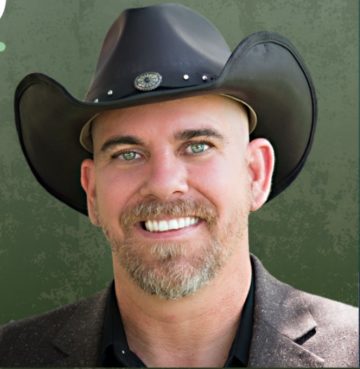
Then there’s Damon Rambo, a Baptist minister running against state Representative Dennis Bonnen, R-Angleton. Rambo claims Americans have a “God-given right” to carry firearms, as well as “knives, pepper spray, stun guns, etc,” in public without a license, known as constitutional carry. Rambo told the Observer that the right to carry firearms should be restricted to adults, though teenagers should be able to carry nonlethal protection.
Mixing religion and weapons is nothing new to Republicans, of course. But the gun rights expansion that McCall, Fallon and Rambo advocate seems extreme even in gun-enamored Texas, including among religious folks. An October 2017 University of Texas/Texas Tribune poll found that 46 percent of Texans who consider religion “extremely important” favor stricter gun control laws. Only 15 percent think they should be less strict. Among Texans overall, 52 percent favor tighter gun control laws, versus 13 percent who think gun control should be loosened.
Whatever the appeal of war-on-Christianity and God-and-guns rhetoric, nothing wins the hearts of conservative Christians like bad-mouthing abortion, and many Republican candidates are willing to oblige this cycle. Abortion rights are at the center of a bitter race between state Senator Bob Hall, R-Edgewood, and his challenger, state Representative Cindy Burkett, R-Sunnyvale. The race for Senate District 2 has devolved into a contest over which candidate loathes abortion more.
Hall recently told a Dallas-area tea party audience that he wants Texas to “lead the nation in ending abortion.”
“Either you’re 100 percent pro-life or you’re not,” Hall said. “Either you believe our God is sovereign, that he is without error, and the Bible is inerrant, or you don’t … We have no business usurping God’s authority and aborting under any circumstance except for the life of the mother.”
Burkett winds up a campaign video by saying “I’m running to protect life and end abortions for good,” and claims her legislation shut down half of Texas’ abortion clinics. Both candidates actively supported the draconian anti-abortion Senate Bill 8, which passed last year but later was partially blocked by a federal court.
Texas Alliance for Life backs Burkett, giving her a 100-percent rating and calling her a “pro-life champion.” Yet Hall calls himself “the only candidate in this race who has voted pro-life 100% of the time.” He’s backed by the further-right Texas Right to Life, which labels Burkett “unfit for the Texas Senate,” principally because she opposed an amendment to SB 8 that would have outlawed abortion after 20 weeks in cases of fetal abnormalities.
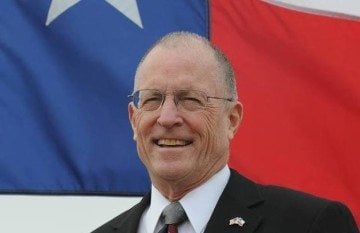
Whatever the differences between Hall and Burkett, their rhetoric about ending abortion doesn’t seem to match where most Texans stand on the issue. Even among Texans who consider religion “extremely important,” 43 percent of respondents to a February 2017 poll would allow abortion in cases of rape, incest, danger to the mother’s life or other medically necessary circumstances, and 19 percent think abortion should always be permitted.
Though the religious extremism of this primary season may be out of step with most Texans, including churchgoers, it dovetails with wider trends in the Texas GOP. Governor Greg Abbott, along with hardline groups like Empower Texans, Texans for Vaccine Choice and Texas Right to Life, are working to purge the party of more moderate Republicans, such as state Representative Sarah Davis. The governor has even accused state Representative Lyle Larson, a fiscal-restraint, small-government conservative from San Antonio, of being a “liberal.”
Call it “the self-marginalization of the Texas GOP.” For as the party takes a hard right, Texas itself seems to be moving in a different direction. Not only is the state becoming less conservative and more diverse religiously, but white evangelicals are themselves on the decline.
Extremism in the pursuit of political gain may work well for Texas Republicans as they fight for party dominance this primary season. But at what price?
